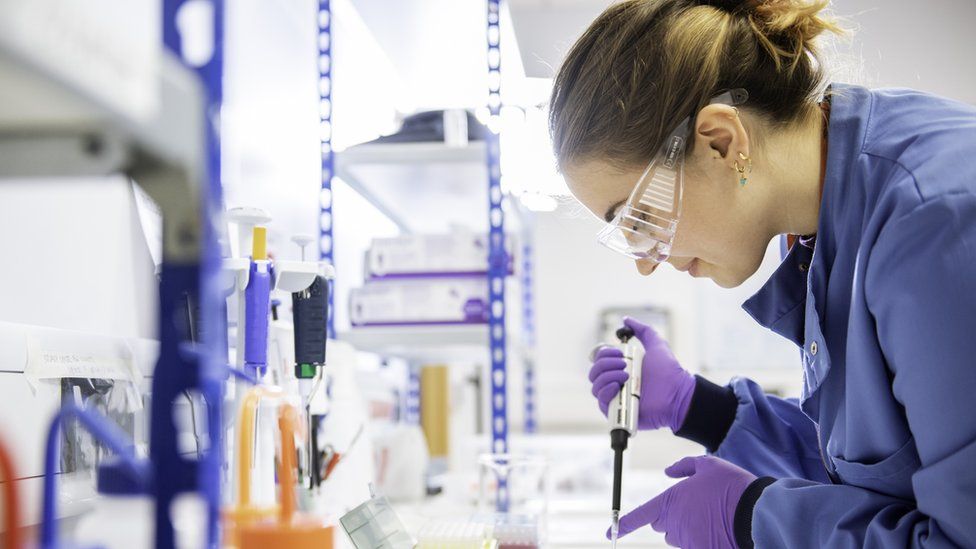ARTICLE AD BOX
 Image source, Slater King
Image source, Slater King
The blood tests are being welcomed by patients recovering from bowel cancer
People who have recovered from bowel cancer and are on NHS waiting lists for colonoscopies will be the first in the UK to be offered alternative pioneering blood tests.
Swansea Bay scientists will offer 200 people in the area the test to check the disease has not returned.
Leading cancer charities have called the development a "positive step" for those waiting for check-ups.
It will be funded by Wales-based Moondance Cancer Initiative.
Thousands of people across Wales are diagnosed with bowel cancer each year.
Those who are treated and survive the disease are monitored through regular scans or colonoscopies.
'Absolutely devastated'
Prof Dean Harris, a colorectal surgeon at Swansea's Singleton hospital, hopes the blood test can be a cheap and an easy alternative for those who are waiting.
"It has only really been possible to do colonoscopies on patients who are suspected of having cancer - those that have come through the GP route, the urgent suspected cancer pathway," he said.
"There are about 4,000 patients in Swansea Bay alone who have been waiting years for a follow-up colonoscopy after they've had bowel cancer or polyps removed.
"Guidelines say they need to have a check colonoscopy done, sometimes a year later, sometimes three years later.
"But all that activity stopped in the pandemic, and now there's a huge backlog, not just in Swansea, but everywhere in Wales and the UK.
"These patients still can't get appointments unless they are developing symptoms and then they get expedited.
"And we know that there are people forming cancers while they are on the waiting list and coming to harm.
"We want to help prioritise which of those patients need to be bumped up the list to have their test done soonest because they're more likely to have a cancer or a polyp present, based on having the blood test done."
The 200 hundred patients chosen will be invited over the next few months.
If the tests are effective, the hope is that the project can be developed elsewhere in Wales - a move welcomed by cancer patients and cancer charities.
Paul Scanlon, a recent cancer patient from Cardiff said anything which can save lives and make check-ups easier is a welcomed development.
Paul Scanlon has had a stoma fitted since he was diagnosed with bowel cancer
The 53-year-old was training for the London Marathon when he spotted blood in his poo.
After months of "putting off going to the doctor" and "chronic back pain", he quickly realised something was not right.
"Cancer didn't even enter my head," he said.
In April 2022, an endoscopy confirmed he was living with two large tumours and had stage three bowel cancer.
"I was absolutely devastated," he said adding the following months were "hell" for him and his family.
Mr Scanlon, who will still need scans every six months for the next five years, said he welcomes any scientific developments to improve lives and reduce anxiety for survivors.
But Lowri Griffiths from cancer charity Tenovus, said: "People are reluctant to come forward because of the nature of the colonoscopy."
The Welsh government has set out a national endoscopy programme to "prioritise people waiting", adding that they are also doing broader work such as "training more clinicians that can perform endoscopy".

 2 years ago
51
2 years ago
51








 English (US) ·
English (US) ·